BANK OF ALBANIA
PRESS RELEASE
Governor Sejko: Welcome Address to the High – level Conference on “Green Finance in South East Europe: Developing capacities and a Taxonomy”
Publication date: 22.06.2023
Dear ladies and gentlemen,
Honourable Minister Ibrahimaj,
Dear Colleagues,
Welcome to the High-level Conference on “Green Finance in South East Europe: Developing Capacities and a Taxonomy”.
First, I would like to extend my sincere gratitude to the CEF (Centre of Excellence in Finance) for the organisation of this Conference and for providing the possibility to share our opinions on a rather important issue for the future of our countries and planet. The CEF is a strong and reliable partner for us, with which we will continue to cooperate to build up policies for guaranteeing the macroeconomic and financial stability. Through its events, the CEF contributes in achieving the goals set forth in the 2030 Agenda for Sustainable Development, by promoting effective, responsible and comprehensive institutions across all levels.
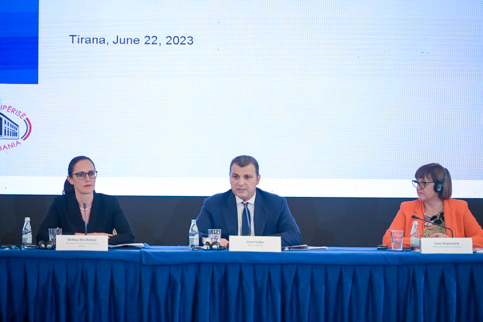
We are aware that climate change is a threat to human well-being and planetary health. These risks, either of physical nature - due to the extreme weather events - or transitional ones, are complex to be both understood and assessed. This complexity becomes more pronounced in the absence of a common language or a taxonomy, as well as due to the lack of sufficient data, empirical models and methods to asses these risks, whose nature is known, but their extension and impact on the financial sector are neither defined nor evaluated properly.
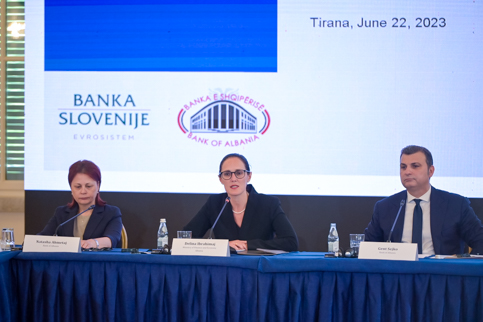
Global awareness related to the actions to face the increasing risks is edging up. In 2015, countries signing the Paris Agreement were committed to cut greenhouse gas emissions; subsequently, the EU established the ambitious goal to become the first climate-neutral continent by 2050. The financial sector plays an important role in reaching this goal, through selecting and financing green projects as well as by preserving the demand-supply balance in markets. At the same time, financial sector is especially exposed to climate change-related risks.
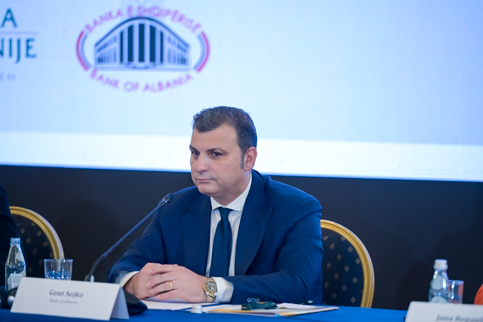
Public institutions in the EU and the European System of Central Banks are front-runners in shaping the global regulatory environment, and have adopted some of the best evolving practices available so far. Their examples have inspired the other institutions and central banks across both advanced and emerged economies.
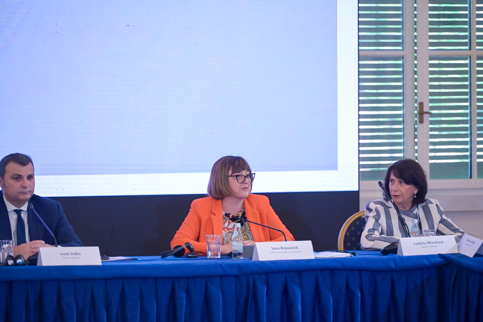
Understanding the issue of climate change from the perspective of central banks and other supervisory authorities includes also structural changes which will impact the financial system and the whole economy. These changes will challenge us in carrying out our fundamental missions, in terms of financial stability, price stability or financial inclusion. In South East Europe, our financial institutions are at early stages of developing a strategic perspective and in the first steps of implementing green finance. While capacities and the taxonomy in green finance are developing quickly, still there are many gaps which call for a prudential coordination, iterative adoption and continuous learning.
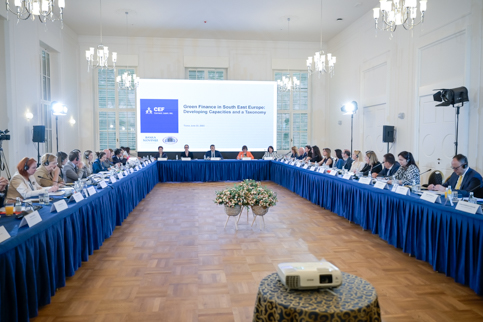
Ladies and gentlemen,
Climate change is an undeniable reality, and despite the fact that Albania contributes in a limited way to the global greenhouse emissions, these latter’s consequences have started to provide their effects in our country as well. Climate change is challenging our economy at all levels, from large businesses to simple households, by affecting all economic actors, across all sectors and throughout the territory of Albania. This great challenge requires a joint and coordinated response from all stakeholders of the economy, including the Bank of Albania.

The financial sector plays a key role in relation to climate change, which has a high cost and a complex nature. Climate change a source of risk to financial institutions, though on the other hand, there is no sustainable development without a sustainable financing. In this context, banking sector may take a leading role for companies operating in Albania. It means both “channelling of funds” and “education of clients” to develop business and investment models, which are more friendly towards the environment and more resilient to environmental and climate risks.
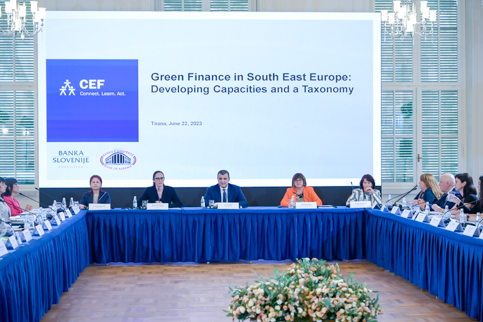
The Bank of Albania, as a public institution, is devoted to understand and address the economic and financial consequences of climate change and the transition to a net-zero emissions economy. We are working on the adaption of our regulatory framework and policies to these changes. Sharing of knowledge, practices, discussions, staff training and public education are crucial in this process, and the Bank of Albania will continue provide sufficient sources to the study and modelling of climate effects on both price and financial stability.
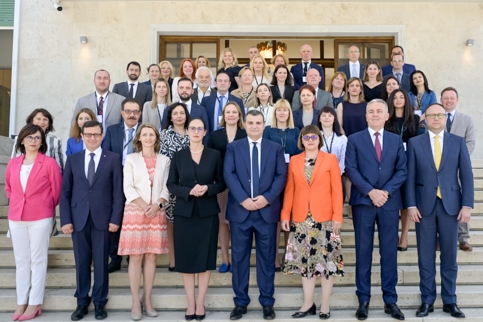
In the last years, we have undertaken concrete steps to address various climate change-related issues and to promote green finance. Since 2018, we have started a comprehensive process for the modernisation and digitalisation of payment market, aimed at bolstering financial inclusion and using electronic payments in the Albanian economy, in turn contributing in green finance. In the field of climate change we have expanded our analytical capacities. In addition, we have contributed in providing analyses and researches on climate-related risks. In our Medium-Term Development Strategy 2022-2024 we have decided to monitor climate risks to the economic and financial environment, where Bank of Albania conducts its activity. Also, we have cooperated with FinSAC (of the World Bank) in drafting a multi-year green strategy, which was approved in May 2023 by the Supervisory Council of the Bank of Albania.
As the Governor of the Bank of Albania, I appreciate the importance of discussion, cooperation and support at international level to address the challenges triggered by climate change and the transition to a sustainable economy. For this reason, we have developed various national, regional and international partnerships to assess and manage the economic and financial impact of climate change. In this context, I appreciate our cooperation with the CEF, our membership since 2020 in the NGFS (Network for Greening the Financial System), as well as the various collaborations with the State Secretariat for Economic Affairs of the Swiss Government (SECO), Vienna Initiative, the World Bank (FinSAC), and many others.
Ladies and gentlemen,
Recently, the challenges we have dealt with are numerous, complex and multidimensional, often interconnected with each other. I know that the change will not happen overnight, but let us be optimistic. Today, starting this High Level Conference, I want to emphasise the importance of green finance as a response to the global challenge of climate change, in turn as an instrument for guaranteeing both the macroeconomic and financial stability.
One thing is certain: the costs or damage of inaction will be far greater than the costs that will come from taking measures to minimize future risks. In this view, we need strong policies, cooperation and innovation. Working together, we can share experiences and build a better and sustainable future for all. Financial system has a key role to play in this process.
With a responsibility to future generations, let's commit today to have a positive impact on the future of our countries and planet. Keep in mind that what we choose to finance today will shape the future of our planet.
Thank you for your attention!

 Linkedin
Linkedin
 Twitter
Twitter
 Youtube
Youtube
 Facebook
Facebook
 Flickr
Flickr
 RSS
RSS
 Subscribe
Subscribe
 Feedback
Feedback